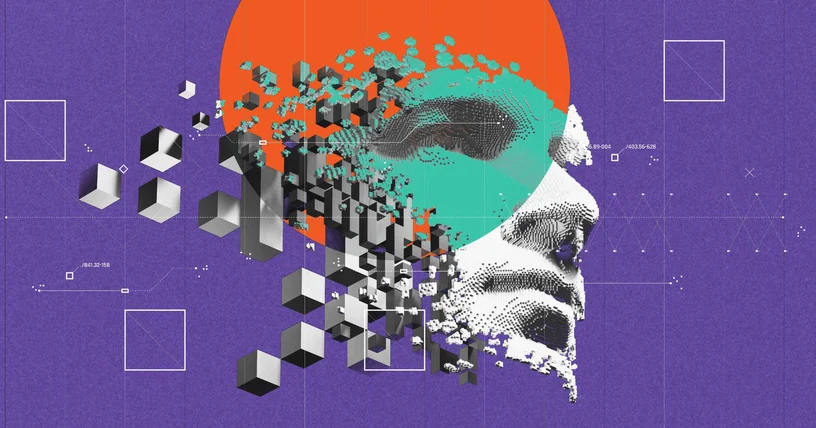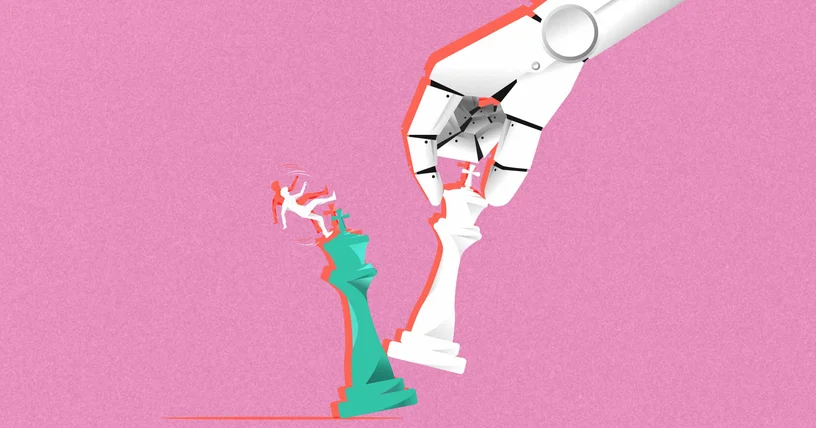Digital Disruption: Recommendations for Visionary Leaders on Adapting and Innovating

By Fast Company Executive Board
“Digital disruption” — the use of new and emerging technologies to fundamentally change how things work — affects every industry, from retail and music to transportation and finance. Technological changes have brought out significant shifts in consumer behavior, enabled new business models, and opened the door for new players in the market.
As the pace of digital disruption picks up, established companies must embrace innovation to compete with these agile startups. Businesses that fail to embrace digital trends risk becoming obsolete.
In this article, we will explore the role of digital disruption in transforming traditional industries; the impact of these shifts on businesses and consumers; examples of industries that have already been significantly disrupted; and recommendations for disruptive leaders.
Traditional Businesses vs. Digital Disruptors
Traditional industries are those that have been around for a long time and have established ways of doing business. They typically have a strong presence in the market, a loyal customer base, and a proven track record of success. However, they can also be slow to adapt to new technologies and changing consumer preferences.
Digital disruptors, on the other hand, are often new businesses using technology to create new possibilities. They tend to be agile and innovative, and they tend to be small organizations, because big companies are often not built for innovation. It is possible, of course, for those startups to become major players.
Consider the differences between brick-and-mortar stores and e-commerce platforms. Traditional brick-and-mortar stores have been around for centuries and have a proven business model. They rely on physical storefronts, in-person interactions with customers, and established supply chains. In contrast, e-commerce disruptors like Amazon have leveraged technology to completely change the way we shop, allowing customers to order products from anywhere and have them delivered. Traditional retailers have scrambled to adapt and create their own online stores.
Impact of Digital Disruption
Digital disruption transforms the way companies operate, whether they are ready or not. Examples of this transformation include:
- Consumer behavior shift: Consumers shop, communicate, and interact with businesses differently. They have more choices and higher expectations than ever before. They demand convenience, speed, and personalized experiences.
- Emphasis on innovation and agility: Digital disruption has forced companies to be more innovative and agile to stay competitive. Traditional industries that resist change are left behind while disruptors look for new ways to create value for customers.
- New business models: Businesses that once relied on physical storefronts, brick-and-mortar supply chains, and traditional marketing methods must now embrace digital technologies like online marketplaces, subscription services, and digital platforms to stay relevant.
Disruptive Innovation Examples
Digital disruption is ubiquitous in today’ market. From transportation to healthcare to retail to finance, we see the effects.
- Transportation: The transportation industry has been up-ended by disruptive companies like Uber and Lyft, which allow consumers to hail a ride from their smartphone.
- Healthcare: Telemedicine and digital health platforms allow patients easier access to medical consultations and even treatment from home.
- Retail: The retail industry has been transformed by e-commerce giants like Amazon, which have completely changed the way we shop. Consumers can now order products from anywhere and have them delivered, rather than traveling to a brick and mortar store.
- Finance: The finance industry has been disrupted by fintech companies like PayPal and Square, with new payment methods and financial services that are more convenient and accessible than traditional banking methods.
Advantages and Disadvantages of Digital Disruption
Digital disruption presents benefits and drawbacks for businesses and their customers. It’s up to leaders to take steps to maximize advantages and minimize disadvantages.
Advantages of Digital Disruption
- Lower costs: With digital tech, businesses can automate processes and reduce the need for physical infrastructure, creating lower prices for consumers and increased profits.
- Increased efficiency: Digital technologies promote efficiency by streamlining processes and reducing waste, leading to faster delivery times, improved quality, and increased productivity.
- Customer engagement: Through social media, mobile apps, and other digital platforms, brands can engage with customers in real time, gather feedback, and offer personalized experiences. Higher engagement leads to increased customer loyalty and satisfaction.
Disadvantages of Digital Disruption
- Job displacement: As companies become more automated and rely more on digital technologies, certain jobs may become obsolete, leading to economic hardship.
- Economic inequality: Digital disruption may exacerbate economic inequality. Businesses that adapt quickly to digital disruption may gain a competitive advantage over those that cannot, leading to market consolidation and increased concentration of wealth.
- Data privacy concerns: As brands collect more data about their customers, there is a risk of violating privacy rights or causing harm.
While the benefits of digital disruption are significant, it is important to be aware of the potential drawbacks and work to mitigate them.
Leading Through Disruption: Recommendations for Visionary Leaders
As technology continues to advance at an unprecedented pace, how can executives remain vigilant and adapt to the new challenges and opportunities?
Focus on data: With the proliferation of digital technologies, organizations have access to more data than ever before. Use this data to inform decision-making, improve operations, and create new value propositions for customers.
Embrace automation: Implement automation and AI solutions to make workplaces more efficient, reduce costs, and create new products and services.
Be informed: The newest technologies to make a big impact, like blockchain and augmented reality, have the potential to disrupt industries in ways we cannot yet imagine. Stay informed about these emerging technologies and consider how you can use them moving forward.
Be agile: Build a mindset of continuous learning and innovation in your company, and to be willing to experiment with new technologies and business models.
Disruptive Thinking for the Future of Business
Digital disruption has already had a profound impact, and will continue to transform the way businesses operate in the years to come. It has already lowered costs, increased efficiency, and enhanced the customer experience for some businesses. However, it has also led to job displacement, economic inequality, and data privacy concerns.
As an innovative leader in any industry, your best bet is to embrace disruptive thinking. Adopt an innovative leadership style. Make your business data-driven, automation-friendly, informed, and agile so it can thrive in the digital age. Experiment with digital technologies. View change as an opportunity and not a threat. Do these things, and you will be the disruptor — rather than the disrupted.
Fast Company Executive Board is a community of visionary, innovative leaders sharing their expertise with one another and publishing ideas for the larger business community. To learn more about joining the conversation as a member of Fast Company Executive Board, visit our membership page or contact us directly.




